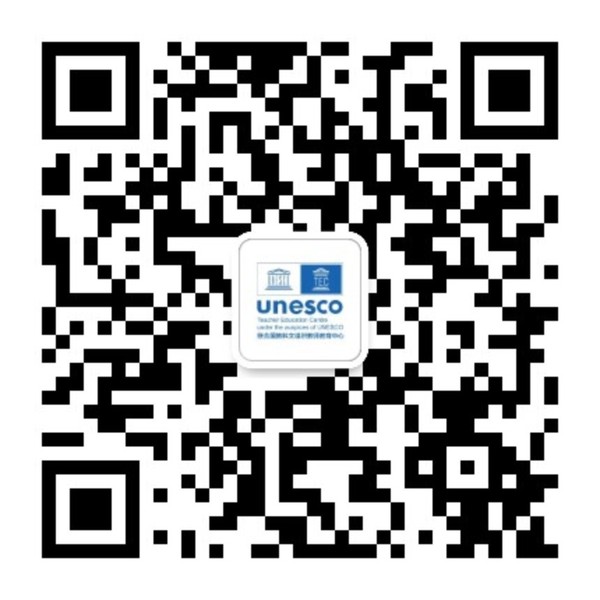From July 15 to 31, 2024, the International Teacher Education Centre of Shanghai Normal University (also known as the UNESCO Teacher Education Centre, TEC) dispatched the second batch of the Shanghai International STEM Education Volunteer Group to Tanzania. The group carried out in-school teaching and teaching research activities and supported the development of local teachers' professional development systems. Following the tradition of the first Tanzania-bound volunteer group in August 2023, this batch recruited two outstanding mathematics teachers from Shanghai’s primary and secondary schools: Teacher Cheng Yijun from Yangjing Juyuan Experimental School and Teacher Zhang Minxue from the International Department of High School Affiliated to Fudan University. For the first time, undergraduate and postgraduate students from Shanghai Normal University were also selected as international STEM education volunteers, with four students joining the team—PhD candidates Zhang Yunji and Hu Qi (majoring in Comparative Education), and master’s students Zhu Jiawen and Cheng Jialei. Against the backdrop of enhancing China’s opening-up in education and advancing both bringing in and going global initiatives, Shanghai Normal University has innovated its international education volunteer mechanism, exploring a new pathway for fostering pre-service and in-service STEM teachers’ global competence.

Shanghai Normal University students participating in educational volunteer services in Tanzania
1. From the UK to Tanzania: Shanghai Mathematics Propels In-depth China-Tanzania Cooperation in STEM Teacher Training
In March 2023, TEC sent a delegation to Tanzania to sign a cooperation memorandum with TIE, establishing the Joint Education Research Centre (JEC-TEC-TIE) in Dar es Salaam—an institution radiating to East African countries, dedicated to sharing high-quality educational resources and jointly cultivating outstanding STEM teachers in the region. In May and December 2023, TEC hosted four sessions of the Shanghai Mathematics Training Program in Shanghai for over 150 Tanzanian educational officials, scholars, mathematics teachers, and educational experts from international organizations. Through activities such as collaborative teaching research with Shanghai teachers and lesson design with different approaches for the same topic, the Tanzanian participants gained an immersive understanding of the cultural and systematic advantages of Chinese teacher education and in-service professional development.
To ensure that China-Tanzania cooperation reaches the grassroots and benefits the people, Shanghai Normal University decided in August 2023 to use TEC (housed within the university) as a platform to send a batch of international STEM education volunteers to Tanzania each year. These volunteers would be rooted in local grassroots schools and teacher education institutions, carry out participatory development initiatives in local communities, and effectively assist the Tanzanian government in building an in-service teacher professional development system with schools as the basic unit.
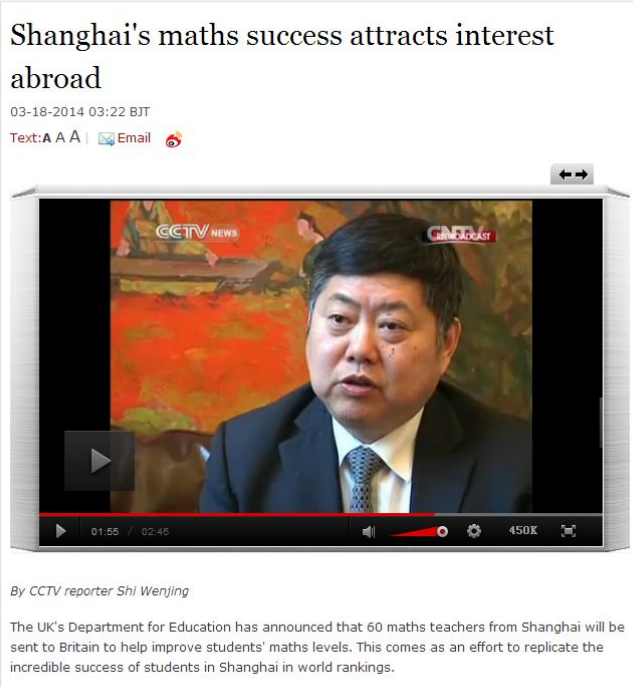
Coverage of the international dissemination of Shanghai Mathematics by the National Committee of the Chinese People's Political Consultative Conference

Introduction to the international dissemination of Shanghai Mathematics by the Ministry of Education of the People's Republic of China
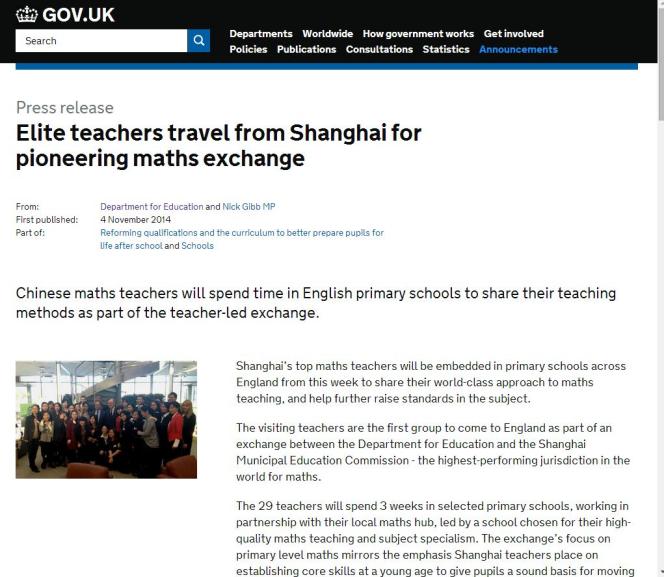
Promotion of Shanghai teachers' exchange to the UK on the official website of the UK Department for Education
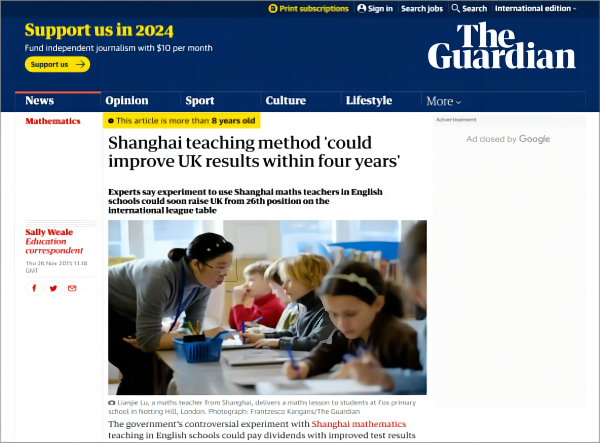
Coverage by The Guardian (UK) on how the dissemination of Shanghai Mathematics enhances UK education
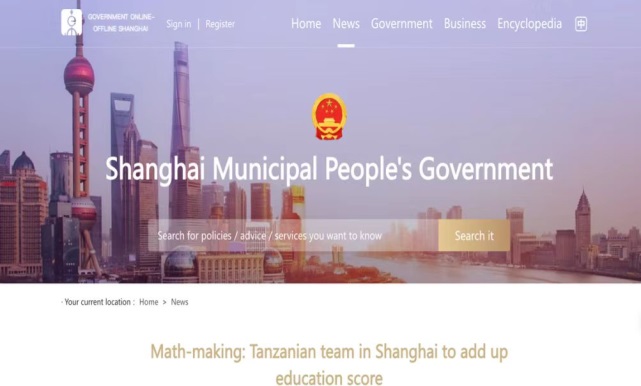
Introduction on the official English website of the Shanghai Municipal Government about Tanzanian educational delegations coming to Shanghai to learn Shanghai Mathematics experiences
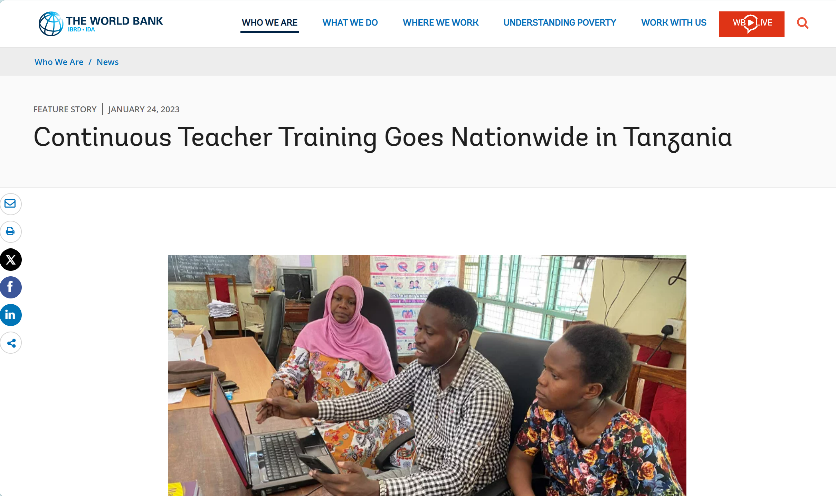
Coverage of the Shanghai-Tanzania Mathematics Teacher Professional Development Project on the World Bank official website
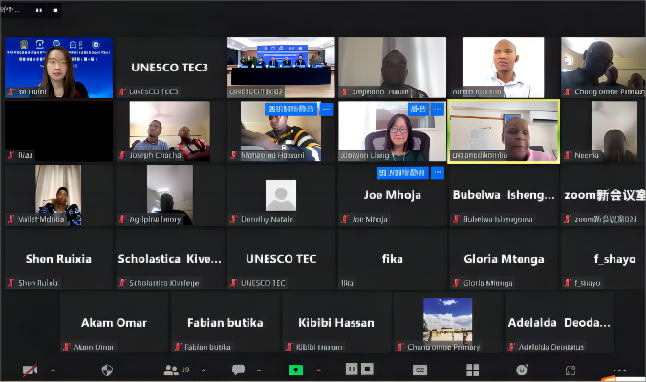
The Shanghai team conducting cloud-based teaching research with Tanzanian teachers
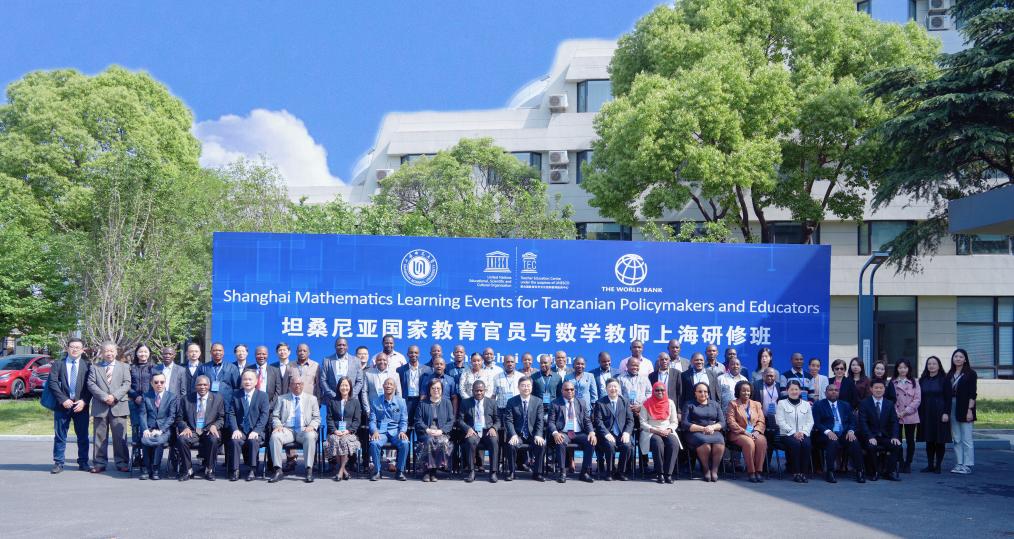
Tanzanian delegation attending the training program in Shanghai
2. The First Expedition: The 2023 International STEM Education Volunteer Group in Tanzania
In the summer of 2023, the first batch of the International STEM Education Volunteer Group—comprising 3 TEC experts and 3 mathematics teachers from Shanghai’s primary and secondary schools—departed for Tanzania. During the volunteer program, the team faced local schools with no prior experience of cooperating with Chinese educational teams. Overcoming environmental and psychological challenges, the volunteers developed a tight three-week work schedule: they conducted teaching demonstrations and collaborative research daily at two schools, and almost guided hand-in-hand to help local teachers master lesson planning, class observation, and lesson evaluation. Additionally, they organized a Shanghai Mathematics workshop for teachers from over 200 primary and secondary schools in the Dar es Salaam region. This initiative was covered by Tanzania’s Daily News (one of the country’s top three newspapers) and Xinhua News Agency’s overseas branches.
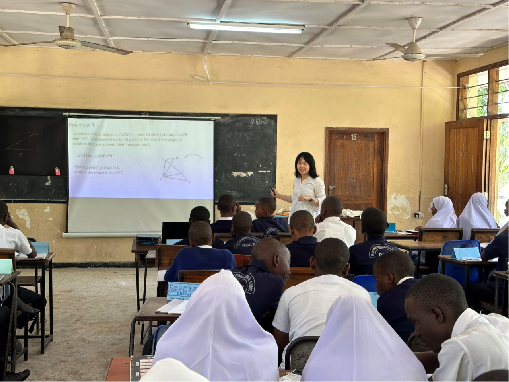
A Shanghai teacher giving a class to Tanzanian students
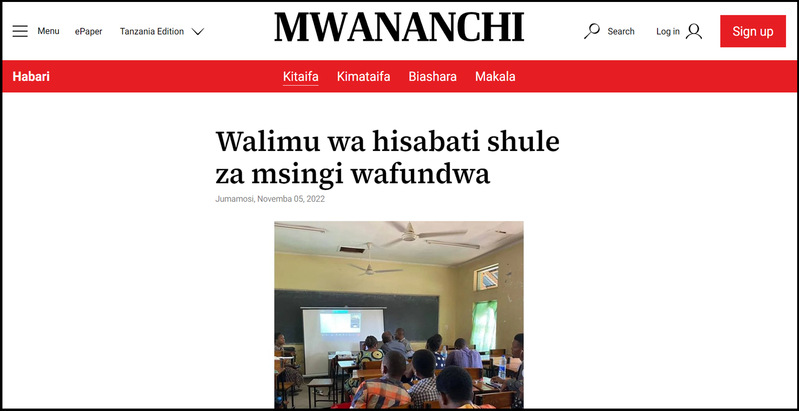
Coverage of the China-Tanzania mathematics education cooperation project by Tanzania’s The Citizen
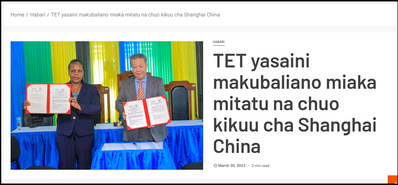
Introduction to Shanghai-Tanzania cooperation by Tanzania’s News Today
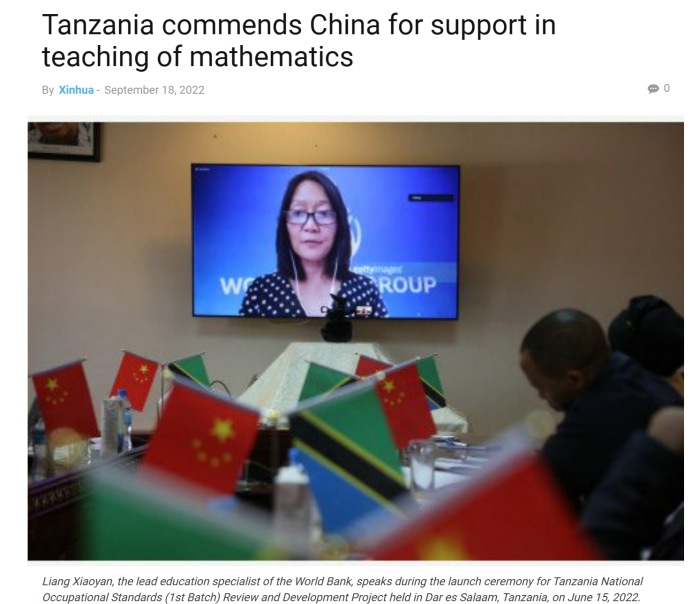
Coverage of the dissemination of Shanghai Mathematics in Tanzania by Xinhua News Agency’s East Africa Bureau
3. Youth Power: 2024 On-Campus Students Join the Shanghai International STEM Education Volunteer Program
On July 2, 2024, a pre-departure meeting for the second batch of the Shanghai International STEM Education Volunteer Group to Tanzania was held at the TEC building. The meeting announced the inclusion of four postgraduate students from Shanghai Normal University in the group and the establishment of a temporary Party branch. With the team fully assembled, they prepared to depart. On the evening of July 15, key members of the volunteer group flew from Shanghai Pudong International Airport to Tanzania, marking the beginning of a new chapter in China-Tanzania education and youth cooperation.

Group photo at the pre-departure meeting of the second batch of the Shanghai International STEM Education Volunteer Group to Tanzania
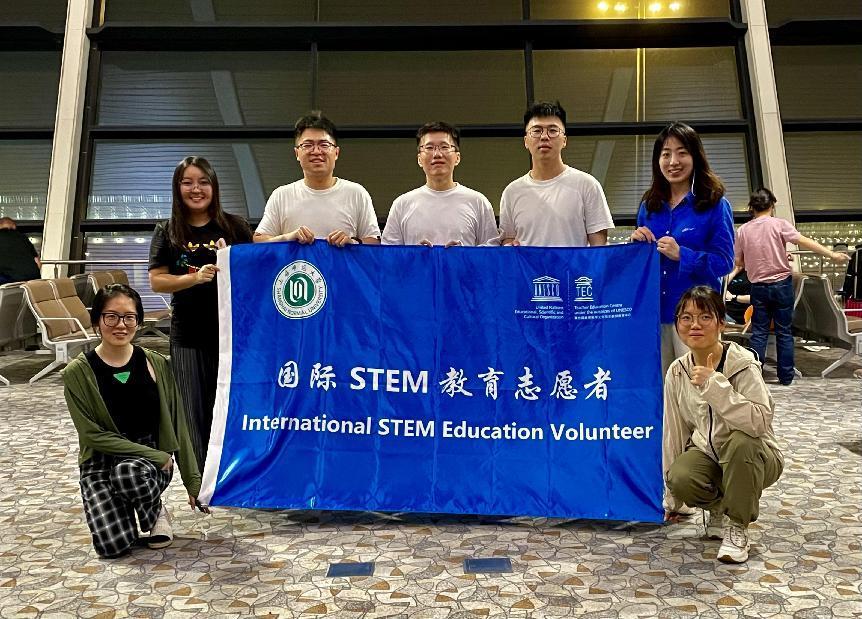
Some members of the volunteer group departing from Pudong International Airport
Stop 1: Diamond Primary School and Olimpio Primary School
Stop 2: Continued Exchanges at Diamond Primary School
On July 17, the volunteer group returned to Diamond Primary School to continue their activities. First, Zhang Minxue—a mathematics teacher from the International Department of High School Affiliated to Fudan University—gave a teaching demonstration for Tanzanian teachers. After the demonstration, under the guidance of Professor Huang Xingfeng, student volunteers assisted Tanzanian teachers in reflecting on and discussing the lesson. The active participation of student volunteers in class observation and discussion helped Tanzanian teachers better understand Chinese teaching research culture and provided them with new perspectives on teaching. Despite the harsh conditions of high temperatures without fans or air conditioning, the volunteers persisted in discussions with local teachers until 4:00 p.m.—a routine that would continue for the rest of their stay.
Stop 3: Welcome Ceremony at the Tanzania Institute of Education (TIE)
At 8:00 a.m. on July 18, the volunteer group went to TIE to attend a welcome ceremony for the volunteer program. Several Tanzanian leaders expressed warm welcome and sincere gratitude to the volunteers at the ceremony. The Chinese and Tanzanian teams held a full-day discussion on issues such as the construction of a digital educational resource database, the volunteer group’s work schedule in Tanzania, and the teaching status and challenges of designated schools. Although physically exhausted, the volunteers were encouraged by the consensus reached, which would drive the in-depth implementation of the volunteer program.
Stop 4: Tool Secondary School
From 9:00 a.m. to 3:00 p.m. on July 19, the volunteer group conducted teaching demonstrations and research discussions at Tool Secondary School—a long-established all-girls secondary school. Dr. Shen Yihua, who gave the demonstration lesson, had in-depth discussions with local Tanzanian teachers on how to connect the teaching of number pairs and coordinates to real life and how to use teaching methods to develop students’ thinking. Dr. Fika Makabangu, Deputy Director of TIE, rushed back from a business trip to join the China-Tanzania cross-cultural teaching research that day. Following her participation in the training program in China in December the previous year, she was eager to experience another session of ideological exchanges among teachers.
Stop 5: Olimpio Primary School
At 8:30 a.m. on July 22, the volunteer group revisited Olimpio Primary School. Cheng Yijun—a mathematics teacher from Shanghai Yangjing Juyuan Experimental School—gave a demonstration lesson. After the lesson, student volunteers once again joined groups of local teachers to conduct collaborative teaching research.
Stop 6: Tambaza Secondary School
At 9:00 a.m. on July 23, the volunteer group visited Tambaza Secondary School. They first observed mathematics lessons taught by the school’s teachers, then held a teaching research discussion on senior high school mathematics with local teachers, which lasted until 3:00 p.m. Senior high school mathematics teaching poses significant challenges for local Tanzanian teachers; however, with the encouragement and guidance of the Shanghai volunteer group, Tanzanian teachers actively shared their teaching experiences and suggestions. Student volunteers carefully documented the class observation and research process and provided many practical teaching recommendations tailored to local conditions.
Stop 7: Joint Visit to TIE with the Shanghai Municipal Education Commission Delegation
On July 24, the volunteer group accompanied a delegation led by Wang Hao, Deputy Director of the Shanghai Municipal Education Commission, to attend an official meeting with Tanzanian government representatives and a ceremony to unveil smart classrooms donated by a Shanghai technology enterprise to Tanzania. At the meeting, representatives from Tanzania’s Ministry of Education, Science and Technology, the President’s Office – Regional Administration and Local Government, and TIE delivered welcome and gratitude speeches respectively. Experts from the volunteer group also reviewed the history and achievements of educational cooperation projects between TEC and Tanzanian partners. After the meeting and unveiling ceremony, Cheng Yijun (from Yangjing Juyuan Experimental School) gave an open class using the smart classroom equipment. Leaders from both China and Tanzania, as well as representatives from local Tanzanian schools (including 3 schools outside Dar es Salaam equipped with the smart classrooms donated by China), attended the class and spoke highly of her teaching. After the class, Professor Huang Xingfeng organized the volunteer group members and over 40 Tanzanian teachers present to conduct teaching research activities.
From July 25 to 26, members of the Shanghai Municipal Education Commission delegation, accompanied by some experts from the volunteer group, visited the Ministry of Education and Vocational Training of Zanzibar and local primary/secondary schools. During the visit, Zanzibar’s educational officials and the World Bank team in Zanzibar held detailed discussions with the volunteer group experts on the possibility of launching new STEM teacher education projects.
Stop 8: Dar es Salaam Regional Teacher Workshop
At 9:00 a.m. on July 25, the volunteer group returned to Tambaza Secondary School to host a regional teacher workshop for representatives from primary and secondary schools across Dar es Salaam. Teacher Zhang Minxue gave an open class on Introduction to Pie Charts to over 30 students from Diamond Primary School. Held in the school’s auditorium, the event attracted approximately 150 participants, including frontline teachers, local education department officials, and local curriculum developers. The workshop ran from 10:00 a.m. to 5:00 p.m., with Tanzanian teachers raising questions continuously, creating a lively atmosphere. During the event, student volunteers moved between teacher groups to perform organizational and coordination roles, ensuring the smooth progress of the large-scale teaching research activity.
Stop 9: Monduli Teachers College
At 11:00 a.m. on July 26, the volunteer group arrived in the Arusha region in northern Tanzania to visit Monduli Teachers College. Northern Tanzania has a high altitude, resulting in significant temperature differences throughout the day. During the 4-hour exchange, the volunteer group members switched from thick jackets to short sleeves as their interaction with new friends deepened. Professor Huang Xingfeng introduced Shanghai’s mathematics education system, emphasizing the equal focus on knowledge acquisition and thinking development, and shared specific practices and successful experiences in interactive teaching. Dr. Ding Ruoxi focused on explaining the role of TRGs in teaching and teacher professional development in Shanghai’s primary and secondary schools. PhD candidate Hu Qi presented the outcomes of the volunteer group’s educational exchanges in Dar es Salaam. Teachers from Monduli Teachers College expressed curiosity about China’s teacher recruitment mechanism, teacher training programs for normal school students, the organization of in-school and regional teaching research activities, and the balance between teacher professional development and teaching workload. The volunteer group members answered these questions patiently one by one.
Stop 10: Marangu Teachers College
At 7:00 a.m. on July 29, the volunteer group drove to the Kilimanjaro region. After a three-hour journey, they arrived at Marangu Teachers College. Located at the foot of Mount Kilimanjaro—Africa’s highest peak—this teachers college has a long history of teacher education and has witnessed the development of education in rural Tanzania. The college’s principal and teachers sincerely told the volunteer group, Here, you can see the truer face of Tanzanian education, and eagerly expressed their desire to host Shanghai volunteers for activities in Marangu the following year. Members of the volunteer group—especially the student volunteers—expressed their willingness to focus on Marangu and go deeper into Tanzania’s vast rural areas in 2025. Later, Dr. Shen Yihua introduced Shanghai’s education system and the characteristics of Shanghai’s mathematics education; Dr. Ding Ruoxi demonstrated the role and value of TRGs; PhD candidate Hu Qi shared the process and achievements of the volunteer group’s activities in Tanzania. Professor Huang Xingfeng organized all members of the volunteer group to answer the questions raised by Marangu’s teachers.
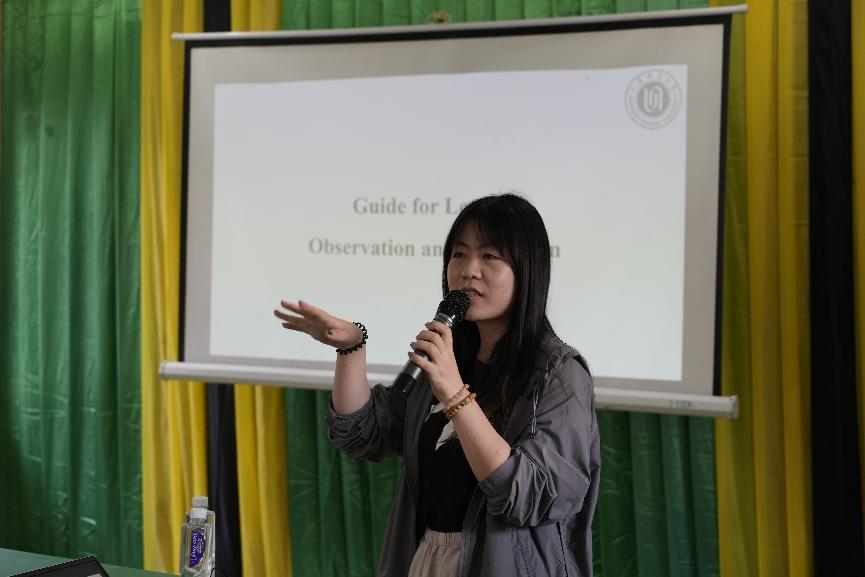
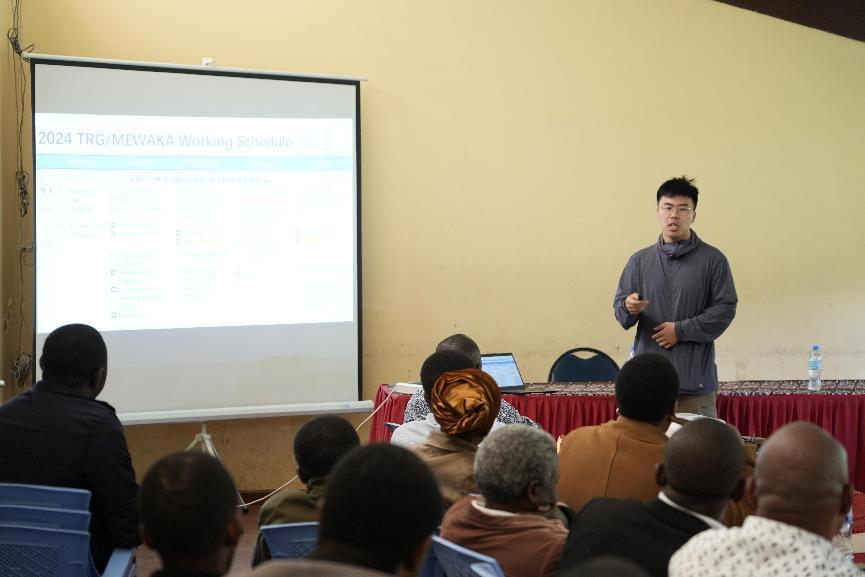
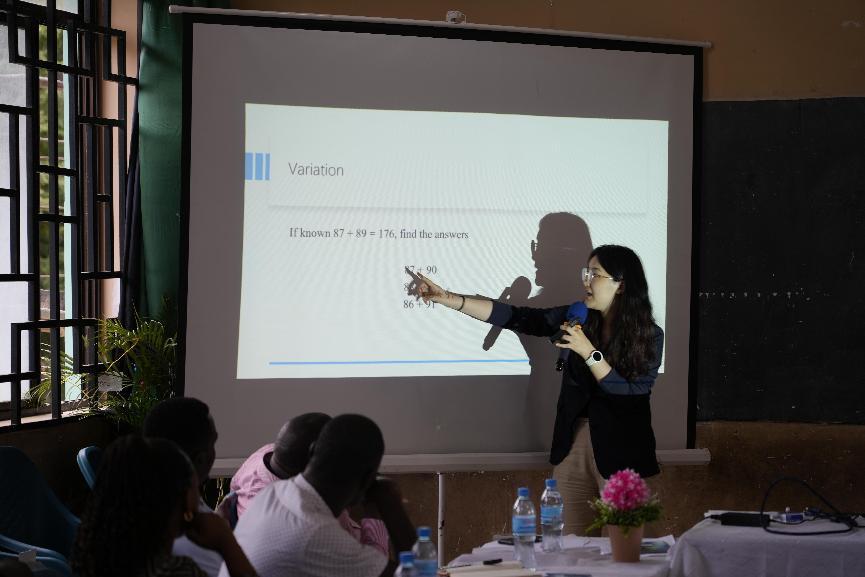
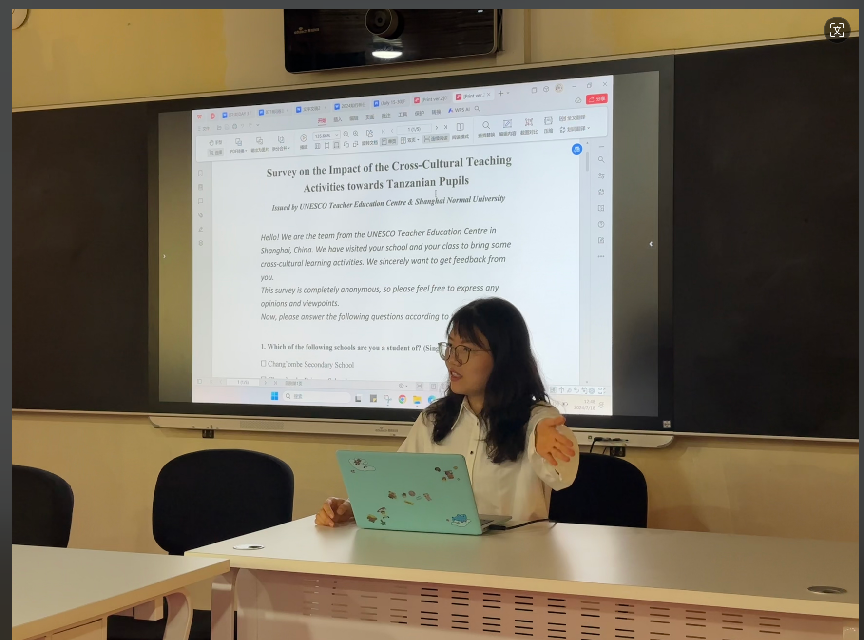
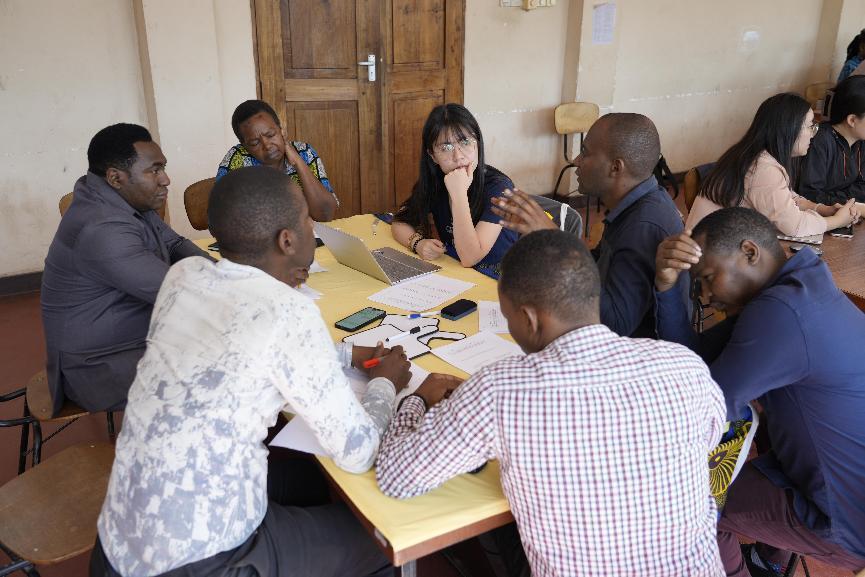
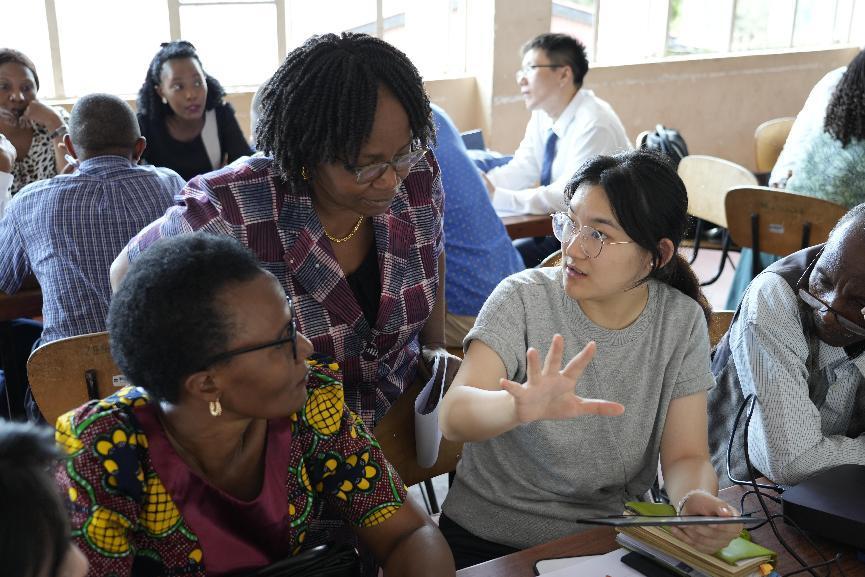

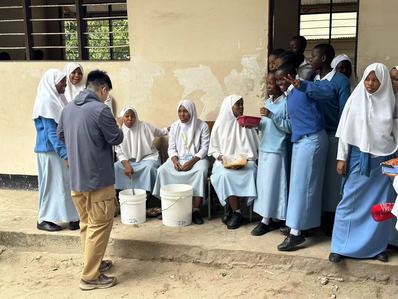
On the afternoon of July 30, the volunteer group boarded the return flight from Kilimanjaro Airport, successfully concluding their activities in Tanzania.
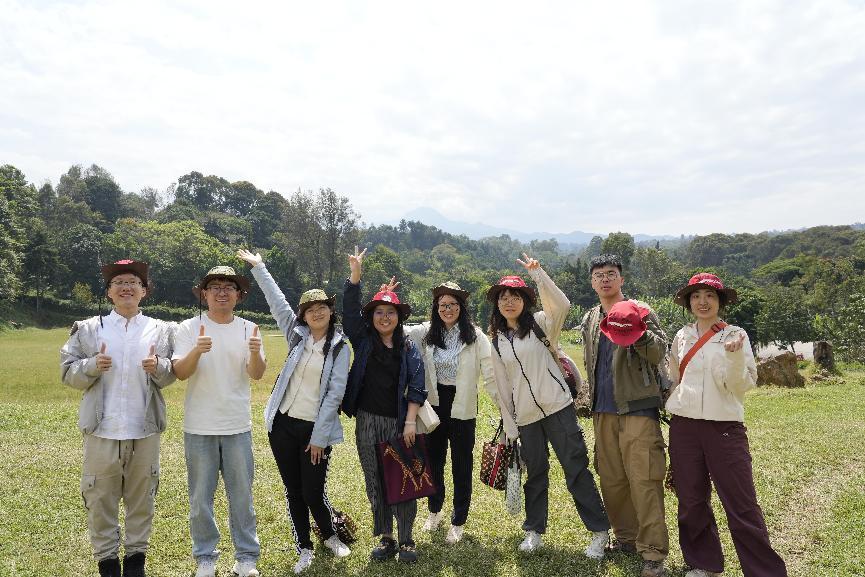
The Shanghai International STEM Education Volunteer Group’s trip to Tanzania was packed with a tight schedule and substantial content. Despite challenging working conditions, the team maintained strong collaboration, mutual encouragement, and high-intensity engagement throughout, demonstrating the demeanor of Shanghai educators and Chinese youth. Student volunteers took on extensive organizational, coordination, and research tasks; in an unfamiliar and complex educational environment, they achieved rapid progress in professional competence and international understanding. As they put it, We have seen a bigger and truer world.




